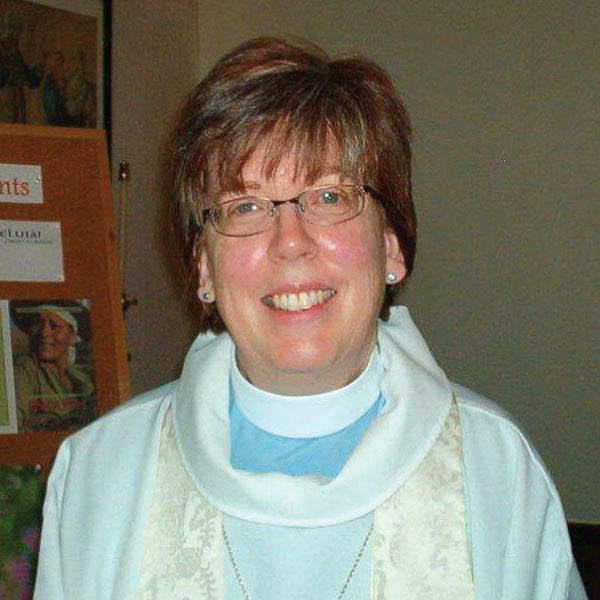For me, a perk – or more accurately, a hindrance – spawned by this relentless pandemic has been binging on television series. Maybe you’ve succumbed to an internet streaming service, watching whole seasons of your favourite show, one delicious episode after another. I’ll admit to watching a few: Foyle’s War, Poirot, Vera, but the one I’ve enjoyed most is Call the Midwife. It’s been a great escape – and surprisingly, a reminder of the Hope that is ours.
I’m not trying to rationalize my addiction but what hooked me is that, based on the memoirs of a real midwife, Jennifer Worth, each episode wrestles with moral, ethical and deeply spiritual questions. There’s even a Curate in the cast, along with a covey of Anglican nuns, who are also mid-wives, dedicated to their impoverished neighbours in Poplar, a postwar slum in London’s East End. I’m impressed not only by their medical expertise and creative ingenuity that averts many a tragedy, but also by the genuine faith struggles of midwives and patients alike and their pastoral care for one another.
A silly Facebook poll recently asked readers to quote a famous movie line without naming the movie. Now I’ve seen lots of movies with memorable lines, but what came to mind was “I don’t know nothin’ ‘bout birthin’ babies!”, exclaimed by Prissy, the maid to Scarlett O’Hara in “Gone With the Wind”. I don’t think it popped into my head solely because of my recent fascination with midwifery.
It’s more likely because in these increasingly uncertain days I’m becoming acutely aware that “I don’t know nothin’” about a lot of things, like how can people be so cruel? Why do some mistrust science, despite clear evidence to the contrary? What’s with the rise of racism, misogyny and misdirected anger? And what do I as a person of faith, a believer in God’s abiding love, have to say in response to such distrust and uncertainty? All the strides we made in protecting human rights, women’s autonomy and race and gender equality seem “gone with the wind”.
Maybe my recent fascination offers some clues. As you might imagine, every Call the Midwife episode features at least one labouring mother. In each vignette, the midwife’s attention is totally focused on her and baby’s safe arrival, and while conversations are remarkably similar, each birth is fully attended as the marvel that it is.
The banter goes something like:
MIDWIFE: “You’re doing so well. That last push really moved baby. Come on, darlin’. Nearly there. Now, I want you to take it slowly as baby’s head emerges. Give me a good push to start.” MOTHER MOANS
MIDWIFE: “Now take a breath and then really control that push. Gently now. Good lass!” MOTHER MOANS
MIDWIFE: “Can you give me another gentle push? Breathe baby’s head out.”
MOTHER GROANS
MIDWIFE: “Beautifully done. Now, one more push!” BABY CRIES
MIDWIFE: “It’s a boy. A perfect little baby boy. What a bonny lad he is! Now aren’t you the clever one?!”
There are days when St. Paul’s words couldn’t be truer: “We know the whole creation has been groaning in labour pains until now; and not only the creation, but we ourselves” (Romans 8:22-23) As we anticipate the pandemic’s fourth wave, watch anti-mask / anti-vax protests on the news, witness Haiti’s latest sorrow and Afghanistan’s slide back into the grip of the Taliban and grapple with our own dark past, it’s easy to forget who we are and to whom we belong. Our prayers are a litany of despair and we wonder what’s next for us and our fragile planet.
Rosalind Hughes, a priest in the Diocese of Ohio, writes, in A Family Like Mine (Upper Room Books, 2020): “With our first breath, before we have even left the womb, we know the source of our being. We know whose child we are. Deeper than memory, thicker than blood, stronger even than love, as it is limited by human imagination.”
St. Paul’s hope is not just blind optimism that disavows the reality of the world’s woes, as if that’s needed is to stop worrying and be happy. True hope is born out of the assurance that what we see and experience – this groaning reality all around us – is not the end of the story. This is the same hope with which a woman in labour hopes.
While we may not know much ‘bout birthin’ babies, we do know something about being a child of God. Our concerns for the world are raw and deep, and our fears not unfounded. Maybe there is something to conserving our strength, learning when to push and when to breath, and when to trust the Midwife, for the time will come when this pain and fear is but a memory.
Photo by Christian Bowen on Unsplash



